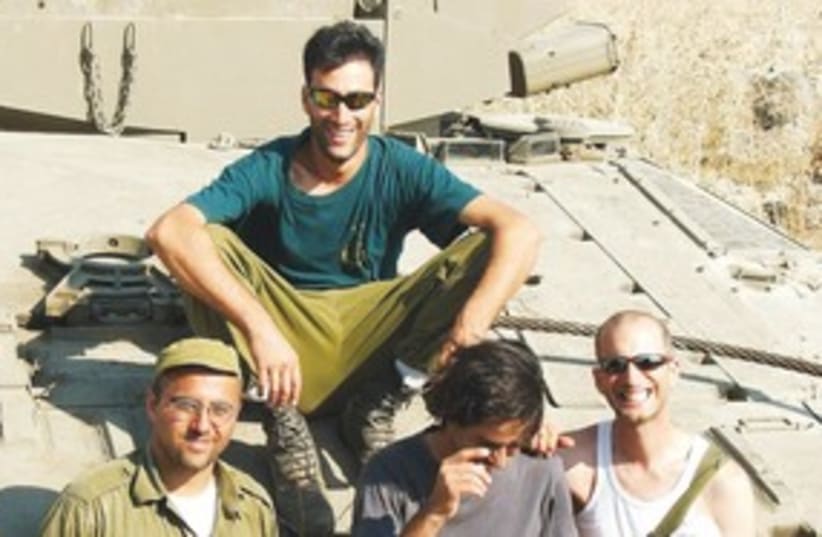Do you see America and the West as failing in their strategic understanding of the dynamics of the region?Essentially there is a failure of conceptualization. There is not yet an understanding in Western policy circles, in Europe and also in Washington, that this is the nature of the game being played, this is the central dynamic of the region, this is the central challenge and that we as the West will either engage with it or we will face a region with more and more instability and less and less room for the West and its allies to promote their own interests. It’s fight or flight, either we are going to stop this process or we will have to accept a situation in which we are being pushed back in the region, and the force that is pushing us is not one that can be accommodated in ways of mutual interest; rather, it is one whose interests and ambitions directly threaten the wellbeing and perhaps even the existence of important presences in the region, of which Israel is one.How do you see the Obama administration on that count?I’m afraid the Obama administration must be given a fairly low ranking. There has not been this conceptualization. On the contrary, there has been the opposite view; it has adopted the almost silly view that the Israeli-Palestinian conflict is the key strategic issue in the region and everything depends on that. You begin with that and you end with the absurd situation that the addition of a balcony in an apartment suddenly becomes a greater strategic threat to the peace of the region than Iran’s ongoing rush toward domination of Iraq, Lebanon and the Palestinian camp, and toward a nuclear capacity.That’s an absurd situation, but it starts off with the wrong thinking that the key issue is the Israeli-Palestinian one and the Iranian challenge is a product of that. It’s the other way round. It’s not that the Israeli-Palestinian conflict is the motor driving other processes in the region. Right now it’s another process, the Iranian push across the region, that is driving the Israeli-Palestinian conflict.Jonathan Spyer will be launching his new book, The Transforming Fire: The Rise of the Israel-Islamist Conflict, with a talk at the Jerusalem Great Synagogue at 8 p.m. this Saturday, January 1. A question-and-answer session will follow the formal presentation and admission is free.
It’s fight or flight
The 2006 Second Lebanon War found Israel woefully unprepared for the Islamist enemy and its new battlefield tactics, says Jonathan Spyer.

Do you see America and the West as failing in their strategic understanding of the dynamics of the region?Essentially there is a failure of conceptualization. There is not yet an understanding in Western policy circles, in Europe and also in Washington, that this is the nature of the game being played, this is the central dynamic of the region, this is the central challenge and that we as the West will either engage with it or we will face a region with more and more instability and less and less room for the West and its allies to promote their own interests. It’s fight or flight, either we are going to stop this process or we will have to accept a situation in which we are being pushed back in the region, and the force that is pushing us is not one that can be accommodated in ways of mutual interest; rather, it is one whose interests and ambitions directly threaten the wellbeing and perhaps even the existence of important presences in the region, of which Israel is one.How do you see the Obama administration on that count?I’m afraid the Obama administration must be given a fairly low ranking. There has not been this conceptualization. On the contrary, there has been the opposite view; it has adopted the almost silly view that the Israeli-Palestinian conflict is the key strategic issue in the region and everything depends on that. You begin with that and you end with the absurd situation that the addition of a balcony in an apartment suddenly becomes a greater strategic threat to the peace of the region than Iran’s ongoing rush toward domination of Iraq, Lebanon and the Palestinian camp, and toward a nuclear capacity.That’s an absurd situation, but it starts off with the wrong thinking that the key issue is the Israeli-Palestinian one and the Iranian challenge is a product of that. It’s the other way round. It’s not that the Israeli-Palestinian conflict is the motor driving other processes in the region. Right now it’s another process, the Iranian push across the region, that is driving the Israeli-Palestinian conflict.Jonathan Spyer will be launching his new book, The Transforming Fire: The Rise of the Israel-Islamist Conflict, with a talk at the Jerusalem Great Synagogue at 8 p.m. this Saturday, January 1. A question-and-answer session will follow the formal presentation and admission is free.